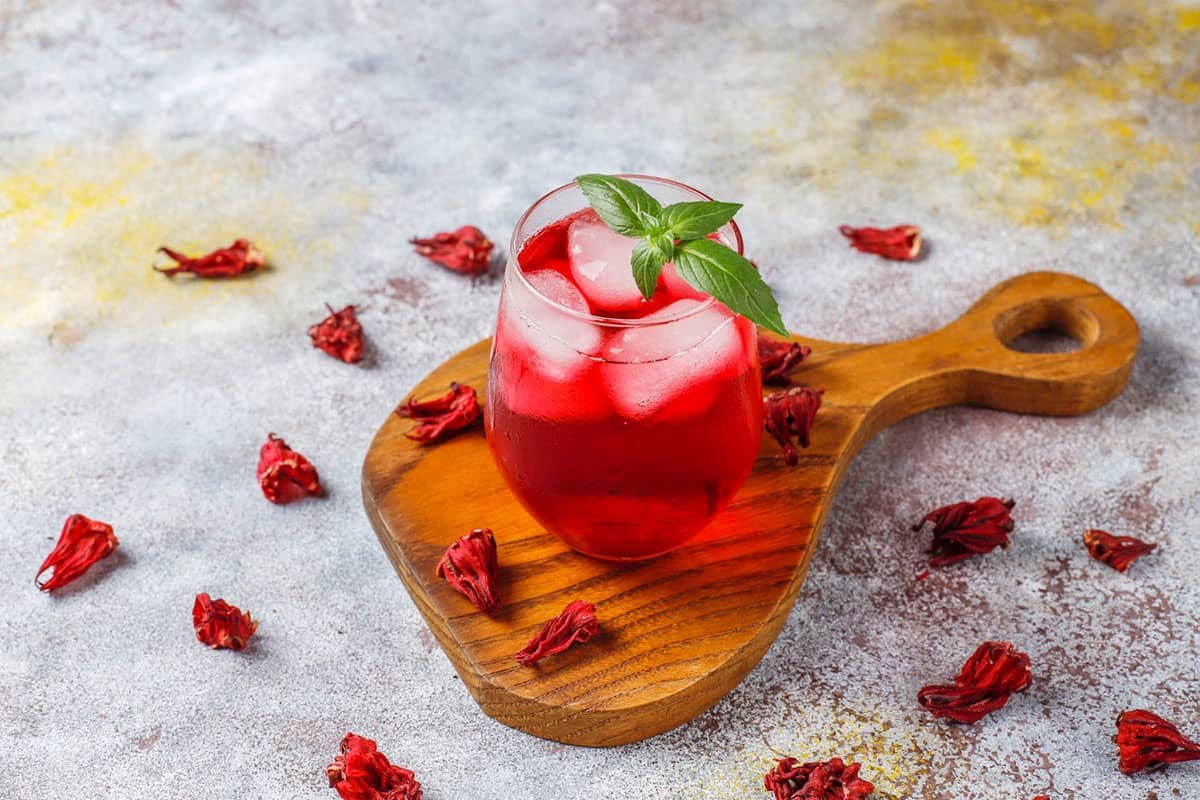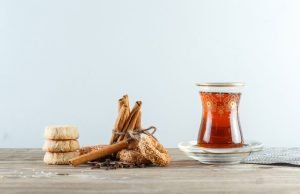Hibiscus tea is a delicious and healthy alternative to other teas. Made from the hibiscus flower, this tea has many health benefits. These benefits include lowering blood pressure, improving liver function, and reducing inflammation. Hibiscus tea is also rich in antioxidants and can help boost your immune system. The tea has a tart, tangy flavor and a beautiful red color.
What is Hibiscus tea?
Hibiscus tea is a delicious and healthy beverage that can be enjoyed by people of all ages. It is made from the Hibiscus sabdariffa flower, which is native to Africa, Asia, and the Caribbean. The Hibiscus sabdariffa flower has been used for centuries in traditional medicine to treat a variety of ailments.
The hibiscus has many different meanings in different cultures, but it is most commonly associated with love, marriage, and fertility. The hibiscus is also known as the “queen of the tropics” because it is such a versatile and hardy plant. Hibiscus flowers can be used to make tea, cosmetics, and even fabric dyes.
Hibiscus tea benefits
Hibiscus tea is rich in antioxidants and has been linked to several health benefits, including lower blood pressure, improved cholesterol levels, and reduced inflammation. The tea is made from the dried pedals of the hibiscus flower. It has a tart, cranberry-like flavor and can be enjoyed hot or cold. Research suggests that tea from hibiscus may help lower blood pressure by decreasing the amount of renin, an enzyme that helps regulate blood pressure.
This tea has also been shown to improve cholesterol levels by increasing “good” HDL cholesterol and lowering “bad” LDL cholesterol. In addition, the tea has powerful anti-inflammatory properties that may help reduce the risk of chronic diseases like heart disease and cancer. To enjoy the benefits of hibiscus tea, steep 1-2 teaspoons of dried hibiscus flowers in 8 ounces of boiling water for 5-10 minutes. You can also find hibiscus tea bags at most health food stores.
Hibiscus tea recipes
Hibiscus tea is a delicious and healthy beverage that can be enjoyed hot or cold. It is made from the hibiscus flower, which is native to tropical and subtropical regions around the world. The tea from hibiscus has a tart, tangy flavor and a crimson color. The
To make tea from hibiscus, start by boiling water and then steeping dried hibiscus flowers in the water for 5-10 minutes. You can also use fresh hibiscus flowers, but you will need to simmer them in the water for longer, about 15 minutes. Once the tea has steeped, strain it and enjoy! You can sweeten tea from hibiscus with sugar, honey, or another sweetener of your choice.

Hibiscus tea recipes
Hibiscus tea is a delicious and healthy beverage that can be enjoyed hot or cold. There are many different ways to make tea from hibiscus, and each one has its own unique flavor.
To make a basic hibiscus tea, start by steeping 1 tablespoon of dried hibiscus flowers in 8 ounces of hot water for 5 minutes. Then, strain the tea and enjoy. If you want to add a little sweetness to your tea from hibiscus, try adding a touch of honey or sugar.
You can also add other ingredients like lemon or ginger to create a more flavorful tea. There are also many different ways to make iced hibiscus tea. To make iced hibiscus tea, start by brewing a strong batch of tea using twice the amount of hibiscus flowers. Once the tea has brewed, add ice cubes and sweeten to taste.
Hibiscus tea is a refreshing and healthy beverage that can be enjoyed all year round. Experiment with different recipes to find the perfect tea from hibiscus for you!
Hibiscus with Mint Tea: This refreshing tea from hibiscus recipe features fresh mint leaves, zesty lime juice, and sweet honey.
Hibiscus Tea with Ginger: This warming tea recipe is perfect for chilly evenings. It features fresh ginger root, cinnamon sticks, and whole cloves.
Hibiscus Tea with Cranberries: This festive tea from hibiscus recipe is perfect for holiday gatherings. It features dried cranberries, orange peel, and star anise.
Side Effects of Hibiscus Tea
Although hibiscus tea is generally safe for most people to drink, there are some potential side effects that should be considered before consuming this beverage. Because hibiscus tea is a diuretic, it can cause dehydration if you drink too much of it. It’s also important to note that tea from hibiscus can lower blood pressure, so if you have hypotension or are taking blood pressure medications, you should speak to your doctor before drinking tea from hibiscus. Additionally, the tea can interact with some medications, such as lithium and listerene.
If you’re taking any medication, it’s best to check with your doctor or pharmacist before drinking tea from hibiscus. Finally, although rare, some people may be allergic to hibiscus flowers. If you experience any allergic symptoms after drinking hibiscus tea, such as difficulty breathing, swelling of the face or throat, or hives, seek medical attention immediately.
The hibiscus is a versatile flower that can be used for many purposes. Whether you’re looking to add a splash of color to your garden, or you’re trying to make a tropical drink, hibiscus is the perfect ingredient. So next time you’re at the store, pick up a few hibiscus flowers and enjoy their beauty and versatility.
Post Disclaimer
The information contained in this post is for general information purposes only. The information is provided as is and while we endeavour to keep the information up to date and correct, we make no representations or warranties of any kind, express or implied, about the completeness, accuracy, reliability, suitability or availability with respect to the website or the information, products, services, or related graphics contained on the post for any purpose.
These statements have not been evaluated by the FDA and are not intended to diagnose, treat, cure or prevent any disease or health condition. If you have specific healthcare concerns or questions about the products displayed, please contact your licensed healthcare professional for advice or answers.


















